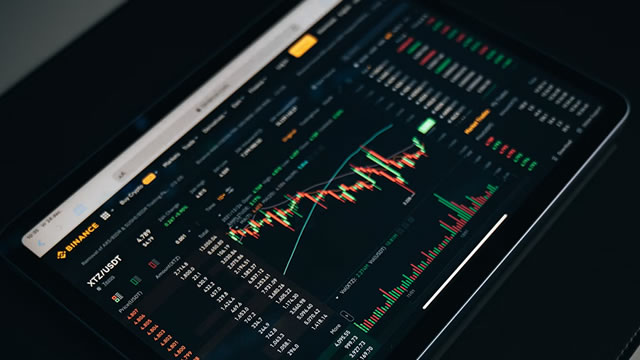Goldman Sachs Warns of Higher Chances for U.S. Recession Amid Escalating Trade War
Goldman Sachs Group Inc., one of the world’s leading investment banks, has raised the odds of a U.S. recession to 45% from 35%. This marks the second time the bank has increased its forecast in a week, reflecting growing concerns over the potential economic impact of the escalating trade war between the United States and China.
Background of the Trade War
The trade war began in July 2018 when the United States imposed tariffs on $34 billion worth of Chinese imports. China retaliated with tariffs on an equal amount of U.S. goods. Since then, the two economic superpowers have continued to impose escalating tariffs on each other’s goods, totaling hundreds of billions of dollars.
Goldman Sachs’ Forecast and Other Investment Banks’ Views
Goldman Sachs’ latest forecast is based on the bank’s assessment of the economic impact of the trade war, which includes a slowdown in global growth, increased uncertainty, and potential disruptions to global supply chains. This view is shared by other major investment banks, such as Morgan Stanley and JPMorgan Chase, which have also raised their odds of a U.S. recession in response to the trade war.
Impact on Consumers and Businesses
The trade war could lead to higher prices for consumers due to tariffs on goods imported from China and retaliatory tariffs on U.S. exports. Businesses, particularly those that rely on global supply chains, could face increased costs and uncertainty. Additionally, the trade war could lead to a slowdown in economic growth, potentially resulting in job losses.
Impact on the World
The trade war could have far-reaching consequences for the global economy. It could lead to a slowdown in global growth, particularly in emerging markets that are heavily reliant on exports. The trade war could also result in increased tensions between the United States and China, potentially leading to further escalation and broader geopolitical instability.
Conclusion
The trade war between the United States and China continues to escalate, with Goldman Sachs and other major investment banks raising their odds of a U.S. recession in response. The potential economic impact of the trade war includes higher prices for consumers, increased costs and uncertainty for businesses, and a slowdown in global growth. The trade war could also lead to increased tensions between the two economic superpowers, potentially leading to further escalation and broader geopolitical instability. It is important for individuals and businesses to stay informed about the situation and take steps to mitigate potential risks.
- Monitor developments in the trade war and its potential impact on your business or personal finances.
- Consider diversifying your supply chain to reduce reliance on any one market or supplier.
- Stay informed about economic indicators and global economic trends.
- Consider seeking professional advice from financial or business advisors.





